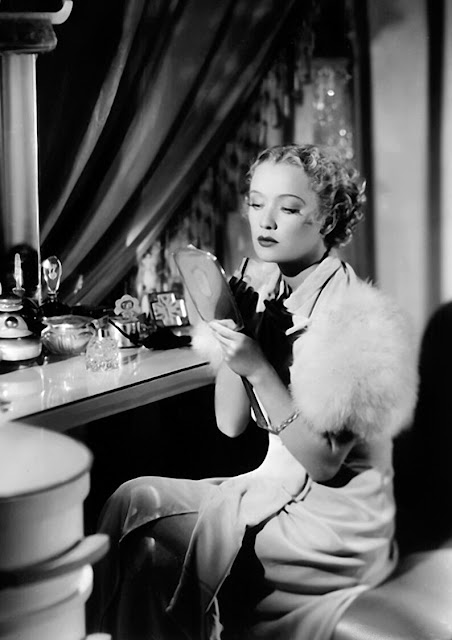Jane Fonda: The Talent And The Will
All film roles,
Tenn believed, ultimately revealed the prejudices and predilections of the
actress inhabiting what he described as the “unreal world” imposed upon her by
an “unholy congress” of producers, agents, managers, coaches, a director, and, at the bottom of the list, a writer.
Jane Fonda, while seen by Tenn as gifted and
promising (an adjective he continued to attach to her talents even when she was
past forty, as she was when we were together) was severely crippled by her
mental limitations. “I am leery of any actress so dependent on coaching,
life-enhancement, affirmation, and acknowledgment before any focused work has
begun,” Tenn said, insisting that Fonda “seems to find no satisfaction in her
work, but rather in the act of completing it.”
This trait she shared, in Tenn’s view, with Shirley MacLaine, both of whom he saw as puppets, athlete-actresses, who loved to sweat
and pant as they reached beyond themselves, no matter the effect on their
audiences. Fonda’s scenes had a “rushed, manic quality to them. Her finest
scene in the whore movie [Klute],
where she checks her watch while seeming to pleasure her man is, for me, her
acknowledgement, entirely without her understanding-- which is the ultimate joke
on her--of how she approaches her work. She makes the move, but she’s checking
her watch, the reactions of her coaches, or her men, or the press.” Or her
father? Yes, Tenn ceded, Fonda was another daughter, disavowed by a powerful
father, forever in the clutches of ruthless substitutes.
“She’s only good when she taps into the one
honest and full emotion either given to her or with which she’s comfortable,
which is anger. When she is tightly coiled and rebels against the image she
most desired, and which perpetually escaped her--the round, creamy
ingenue--she is an ephebic, unpleasant but striking actress. Boyish, angular,
her voice strident and seeking to hurt and illuminate with harshness, rather
than to caress and coddle, she is fascinating, but there is no discipline
underneath the attempts, but rather a haphazard, neurological placement of
effects upon a character that I find compelling, but which I also find
disturbing after repeated viewings because, as with Kim [Stanley], I am no
longer at a thespic event, but a necropsy of sorts.”
Comedy, Tenn believed, revealed so much more
of a person’s personality than did drama, because of “both the absurd extremes
that comedy imposes on a performer, and also because, I think, of the inherent
snobbishness that so many actors have toward this lesser arm of the drama. In
casually approaching this silly form of art, they inadvertently let us see how
they see themselves in moments of extremity, how they play, how they, if you
will, relax, and Fonda is, for me, repellent in comedy…stiff, stupid, shrill, a
perpetual brat.”
Tenn laughed, then added, “And, of course,
having said all of this, I find her totally appropriate for my fog and for
inhabiting my senses, for I, too, am all of those things, and I am sure I can
make something of this.
"We are not done with Miss Fonda. The talent and the will are both there, and she will be free one day to share and to express both. I find her an inspiration in this sense, and I would like to think that she can teach me to overcome those traits we share, those traits that limit us. We should, all of us, at regular intervals, watch her in They Shoot Horses, Don't They? That is a performance that ranks among the best. That is a performance at which I could almost sense all of the great film actresses sighing, donning a prayer shawl, and lowering their head in admiration. Horses and Klute are only two films she has made, and they contain enough extraordinary acting that they amount, in reality, to decades of work."





Comments
Post a Comment
Thank you for your comments. The moderators will try to respond to you within 24 hours.